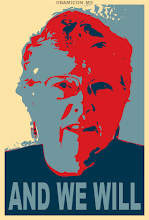Complex Defeat for Nobel Winner in Guatemala
SANTIAGO ATITLÁN, Guatemala, Sept. 10 — There are two ways to win political office in this traditional Mayan town nestled on the southern shore of Lake Atitlán, and campaigning is but one of them.
The other is to call on Maximón, a quasi deity carved from wood that is stashed away in a darkened room near the town center. Ringed by candles and doused with rum, the figure is said to have magical powers, including the ability to sway an election.
Before the nationwide elections here on Sunday, representatives of several political parties secretly called on Maximón, although the keepers of the statue declined to specify who they were.
One who did not seem to get any spiritual help is Rigoberta Menchú, the first indigenous presidential candidate in this predominantly indigenous country and the winner of the 1992 Nobel Peace Prize for her advocacy on behalf of Guatemala’s marginalized Mayans.
She finished sixth in a field of 14, according to results released Monday, with just 3 percent of the vote. The two front-runners, Álvaro Colom and Otto Pérez Molina, will compete in a runoff on Nov. 4.
Why Ms. Menchú fared so poorly is as complex as the Mayans themselves.
She was not from around here. That was obvious to anyone who scrutinized the details of the embroidery on the traditional Mayan clothes she wore to campaign. She is a Quiche Mayan, from the midwestern highlands. Her indigenous language is different, unintelligible to a local Tz’utujil speaker. Nineteen other Mayan groups live in Guatemala, each linguistically distinct. Because of the rivalries and conflicts among Mayans, Ms. Menchú had to win over Mayan voters just like any other outsider.
“She’s one of us, but she’s not,” explained a Tz’utujil Mayan who voted for someone else.
She also entered the race without a social organization as a base and was considered a lackluster campaigner and an uninspired speaker.
Furthermore, many older Mayan men are traditional when it comes to women. “Lots of men don’t want a woman to boss them around, and especially a woman president,” said Delores Ratzan, a Tz’utujil Mayan tour guide here. “They think it will ruin the country, and they tell their wives that.”
The Mayans of Guatemala are poorer and sicker than Ladinos, as Guatemalans with mixed Spanish and indigenous blood are known. Those who live traditionally straddle two worlds, one ancient and one modern, which can be difficult.
Santiago Atitlán, flanked by three volcanoes and a huge lake, remains one of the last frontiers of traditional Mayan culture.
Still, in Mayan communities everywhere, the dream of wealth in the United States is a strong draw. Those who manage to get there send back remittances. But the migrants change in their families’ eyes, becoming less Mayan.
Ms. Menchú, 48, who is married and has a son, is regarded by many as one of these émigrés because she spent years in Mexico. And the Mayans seem to expect her to share her wealth.
“Menchú has gotten all this money from the outside, and we haven’t seen it,” said Diego Ramírez. He backed Mr. Colom, whom he considered more likely to bring a much needed public hospital here.
Ms. Menchú set up a foundation to aid Mayan communities with her $1.2 million in Nobel Prize money, and she subsequently invested in a chain of pharmacies. But during her campaign, she found herself on the defensive, insisting that she had helped her people and was not rich.
Her campaign certainly was not. Ms. Menchú did not have enough money for the radio and television advertising campaigns that other candidates employed or even to give away T-shirts or hats.
“Campaigns shouldn’t be only for multimillionaires,” Ms. Menchú said Friday on her last day of campaigning. “We are against spending so much to get in office when there are people dying of hunger. It seems obscene.”
Still, some voters said they feared that a poor campaign would translate into poor governance.
Ms. Menchú won her prize while living in exile in Mexico, and has always been far better known outside Guatemala than at home.
“Her principal strength, which is her international presence, her international strength, her international work, is in Guatemala her principal weakness,” Ricardo Falla, an anthropologist, wrote in July when polls indicated that Ms. Menchú had less than 2 percent of the vote.
There was also the question of “Mano Dura,” or firm hand, the campaign motto of Mr. Pérez Molina, a former Guatemalan Army general who has vowed to rub out crime.
Guatemala’s indigenous communities suffered mightily during the country’s long civil war, from 1960 to 1996. The people of Santiago Atitlán felt brutalized, rising up against the army after a massacre in 1990.
But violence has returned to the country in the form of gangs and drug lords. During the campaign season, at least 50 people tied to various campaigns were reported killed.
Guatemalans appear eager for peace again even if it requires a tough crackdown, analysts say. Some voters regarded Ms. Menchu, who lost her father, mother and two brothers at the hands of government security forces, as insufficiently tough.
Mr. Pérez Molina received 2,406 votes of 14,000 here, compared with 347 for Ms. Menchú.
The most oft-heard argument against Ms. Menchú was her lack of experience. “It’s her first time participating,” said Francisco Mardoqueo Reyes García, the indigenous mayor of San Raymundo, who backs Mr. Colom. “She’ll do better next time around.”
Next time around, in fact, Ms. Menchú, as a Myan, might have a mystical advantage. The next president will take office in 2012, a significant year in the Mayan calendar, although nobody is certain what the year will bring.
Some say it will be a cataclysmic earthquake. Others fear it will be the end of the world. Or could it be, as some of Ms. Menchú’s backers are already whispering, something as jarring as a Mayan president?


Links to this post:
Create a Link
<< Home